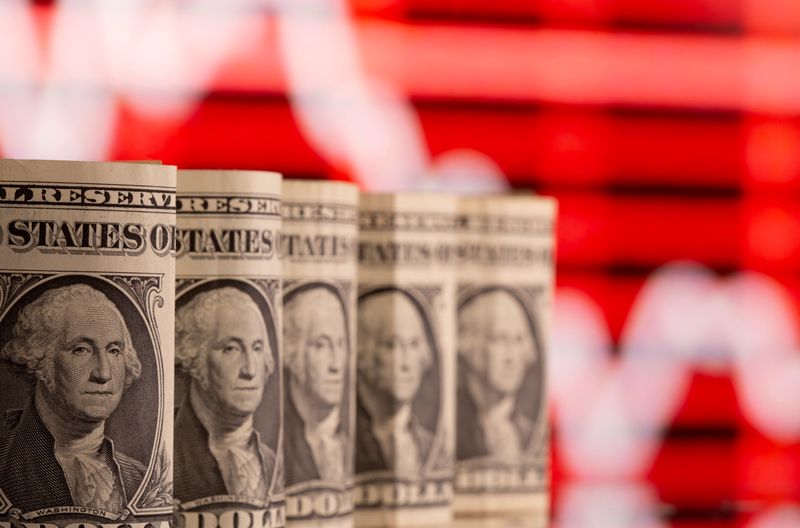By Kevin Buckland and Sagarika Jaisinghani
TOKYO (Reuters) - The dollar hit multi-month highs against the euro and the yen on Friday after Federal Reserve Chair Jerome Powell did not express concern about a recent sell-off in bonds while sticking to his stance to keep interest rates low for a long time.
While Powell did stick with dovish rhetoric overall, he said the sell-off in Treasuries was not "disorderly" or likely to push long-term rates so high the Fed might have to intervene more forcefully, reigniting a sell-off in Treasuries.
He also reiterated a commitment to maintain ultra-easy monetary policy until the economy is "very far along the road to recovery."
"Markets are listening to the central banks and if they are going to be on hold for a long time, that means long-term inflation is going to be higher and that's why you're seeing the bond and equity markets sell off," said Commonwealth Bank of Australia (OTC:CMWAY) currency analyst Joseph Capurso. "The currency markets are reacting to the increase in volatility in both those markets."
The euro slipped 0.2% to a three-month low of $1.19515 following a 0.7% slump overnight.
The dollar hit an eight-month high of 108.035 yen earlier in the session before giving up much of its gains.
Japanese Finance Minister Taro Aso declined to comment on the yen's decline when asked about how the depreciation would affect the economy.
The dollar index hit a three-month high and last stood at 91.672 in the Asian session after gaining 0.7% on Thursday
The dollar's gains came as the benchmark 10-year Treasury yield jumped back above 1.5%, rising as high as 1.584% in Asia. Last week, it soared to a one-year peak of 1.614%.
Impending U.S. fiscal stimulus is adding fuel to expectations of higher inflation, as the accelerating roll-out of COVID-19 vaccines boosts confidence in an economic recovery.
Riskier currencies including the Australian and New Zealand dollars slid along with stocks as investor sentiment again turned sour.
"Once the bond rout comes to an end, once the volatility fades away, the commodity currencies (the Aussie and the kiwi) are going to be able to climb back up because commodity prices aren't falling," said Capurso at CBA.
The Aussie weakened 0.3% to $0.7705, extending Thursday's 0.7% drop. The kiwi fell 0.2%, adding to its 0.8% slide overnight.
In the cryptocurrency market, bitcoin fell 2.3% to $47,272.65. Ether dropped 3.6% to $1,483.43.
